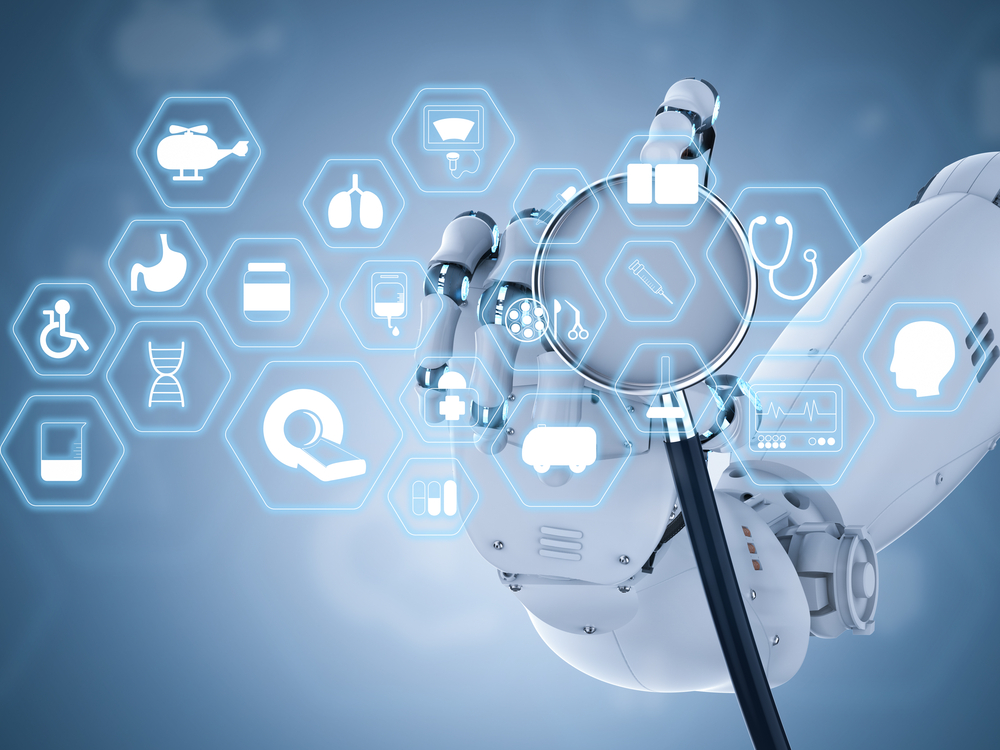Artificial Intelligence (AI) promises to become a key element of technological innovation in healthcare in 2022. It is an important ally in the medical field to improve software that is used every day to assess health, perform surgeries, sequence genes, discover new drugs, especially in the development of new medicines, and process drugs and procedures against Covid-19.
AI technologies in support of medical applications
The medical field is evolving to be more patient-centric, and artificial intelligence devices are part of that evolution.
The healthcare technology market continues to expand. According to Markets & Markets, the market is expected to grow by 46.2 percent by 2027, reaching a total revenue of $67.4 billion.
The COVID-19 pandemic has made the use of AI-driven technologies even more critical by accelerating their development in the medical field. From the pre-pandemic period to today, the percentage of large companies investing more than $50 million in AI technologies has increased from 75 percent to 95 percent!
Machine learning is becoming increasingly important in automated data analysis. The self-learning capabilities of artificial intelligence can improve the accuracy of medical analysis, diagnose disease, and develop procedures that are more relevant to customer needs.
Computer vision is a modality that can be used to guide robotic surgical procedures, enabling more effective diagnoses and reducing the number of false positives. This form of surgery promises to greatly increase the effectiveness of medical procedures and therapies.
Natural language processing increases the ability of connected devices to collaborate over the Internet to improve the accuracy of patient data analysis. The prospects for medical applications of natural language processing (NLP) are very promising, especially for new drug design and medical diagnostics.
Artificial intelligence in the field of medicine: what are the developments?
In the medical field, artificial intelligence can be extremely valuable in making predictions based on available historical data and observations of current phenomena.
Deep learning and neural networks are tools that can analyze multiple levels of variables simultaneously to improve performance.
Artificial intelligence makes it possible to analyze patients' clinical reports and store conversations with patients to increase the clinical information available. Data can be analyzed continuously and at scale. In this way, medical information can be shared between different applications, increasing the ability to perform more comprehensive analyses. The potential of these technologies in the areas of self-diagnosis and medical education has yet to be explored.
Large pharmaceutical companies are increasingly focusing on the development and design of AI-driven solutions. Intelligent technologies have been used in drug discovery since the 1950s and have made great strides in recent years. They can be used in the most minute genetic analysis to interpret the human genome, as well as to study new drugs and treat diseases. AI can be used to support the work of chatbots and OCR software in the medical field.
Among the most important applications that will be enabled or enhanced by artificial intelligence are:
● Surgical robotic assistants: the use of AI will allow more precise surgical tasks to be performed, reducing patient time,
● Virtual assistants for patients who will be able to operate remotely, reducing unnecessary visits and providing timely medical alerts on patient conditions,
● Assistance in performing medical tasks, such as reporting notes on patients' conditions and prescribing medications; this could lead to tangible time savings for doctors and nurses in their daily activities.
These AI-powered medical technologies promise to be definitely valuable in the medical field and useful in improving the lives of patients. And we are only at the beginning!
